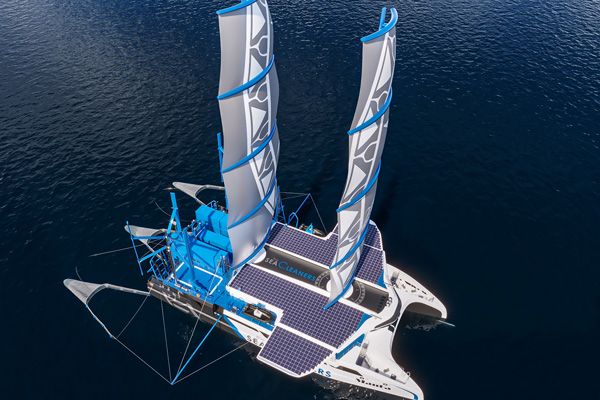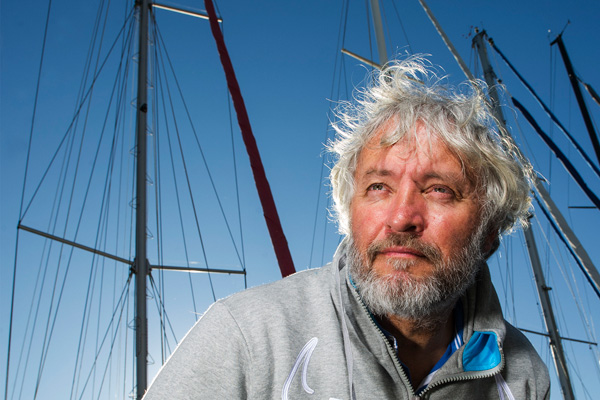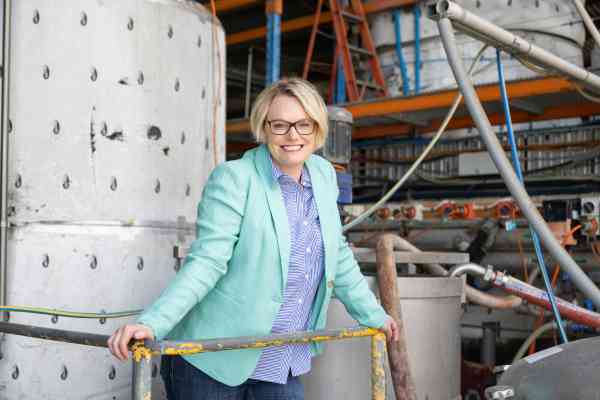Giant ‘Manta’ munches sea plastic
A huge deep sea sailing boat will soon be transforming floating plastic waste into energy to power itself.

Pollution will be the power driving this innovative vessel.
The huge deep-sea catamaran-come-factory called the Manta will soon be transforming floating plastic waste, macro waste and plastic fragments into energy.
Developed by The SeaCleaners, the Manta is due to set sail in 2024 and will carry two smaller vessels (Mobulas) with it, tasked with servicing calmer waters such as rivers and bays.
It aims to collect between 5 to 10,000 tonnes per year of floating plastic waste in areas of high concentration before it breaks down to microplastics.
The SeaCleaners says it will extract floating macro-waste and smaller debris larger than 1 cm and up to a metre in depth at a rate of 1 to 3 tonnes of waste per hour (depending on its density), with the ability to run up to 20 hours a day, 7 days a week.
A key focus will be on floating waste in areas of high concentration but low UV exposure, collecting plastics before they fragment into smaller particles.
To limit its own CO2 emissions, the Manta will use renewable energy sources such as wind, solar and hydrogenerators, along with the electricity produced by the pollution processed in its waste-to-energy conversion unit.
"I have been travelling the oceans since I was 8 years old. I've seen them deteriorate, warm up, acidify and become plasticised."

The vessel is expected to be about 75% autonomous, according to The SeaCleaners, with minimal impact on marine fauna and flora and very little use of anchors.
To protect marine life, an infrasound system will be deployed to deter creatures from approaching the boat, while waste sorting will be done by hand to ensure that any organic elements caught in the collection mats can be returned to the water.
The first missions for the Manta will focus on highly polluted coastal, estuary and river mouths with its initial deployment planned in 2024 for South-East Asia, according to The SeaCleaners.
The vessel will also host scientific missions and while in port will hold public educational conferences. It also aims to serve as a showcase for innovations in processing and repurposing waste, and green shipping technologies.
“I have been travelling the oceans since I was 8 years old. I’ve seen them deteriorate, warm up, acidify and become plasticised,” says Yvan Bourgnon, founder and chairman of The SeaCleaners.
“I created the association The SeaCleaners to fight against this global scourge with the desire to create a revolutionary ship, a pioneer in the collection of plastic waste, the Manta.”
This year the organisation launched its smaller ‘Mobula’ vessels, designed to clean up macro waste, micro-plastics and hydrocarbons in calm, protected waters.
The Mobula’s were developed in collaboration with the builder of marine pollution vessels, Efinor and at a demonstration event earlier this year during the Ménage ton Canal event in Paris, the Mobula 8 collected 2,067 kilos of waste. The boats will undertake their first mission in Indonesia later this year.
The tech
The Manta will use Pyrolysis as one of its energy systems, converting collected waste into electricity to keep the boat running, and will process 90 to 95% of the waste collected on site. This is complemented by renewable energy from hydro generators, solar panels and wind turbines.
Its four collection systems include; waste-collection conveyors to bring the waste on board, three floatable collection systems for gathering surface waste across 46 metres, and the two small, multi-purpose collection ‘Mobula’ boats for collecting plastic waste from shallow, narrow areas not accessible to the Manta. Two lateral cranes will allow operators to haul larger pieces of floating debris from the water.
Who funds it
The Manta is being developed by The SeaCleaners, a scientific and educational organisation seeking to develop waste collection solutions.
Is it ready to roll
The Manta will officially launch in 2024, and as well as collecting waste it will also host scientific missions and public educational conferences.





